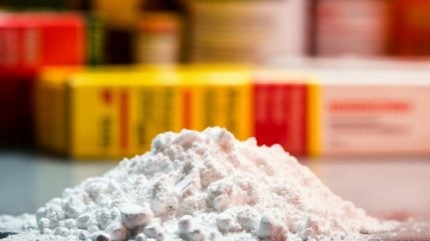
The pharmaceutical industry is currently experiencing a surge in novel drug candidates. These new drug approvals are leading to a rising demand for high-quality development and manufacturing capacities that meet stringent current good manufacturing practice (cGMP) standards.
According to GlobalData’s 2024 M&A in the Contract Manufacturing Industry: Implications and Outlook report, 44% of acquisition targets in 2023 were multi-service manufacturers, with the majority offering specialised capabilities, the higher value forms of pharma manufacturing. The production of these highly specific and targeted drugs necessitates more complex and longer manufacturing processes, driving the demand for high-quality and technologically versatile production capabilities.
As the pharmaceutical landscape evolves, there is a growing emphasis on multi-service CMOs that can provide comprehensive manufacturing solutions, including specialised capabilities. What’s more, regional demand and geopolitical factors are leading to a repatriation trend, resulting in heightened demand for local production capacities in the pharma sector.
With this high demand come a multitude of challenges for pharmaceutical manufacturers, including space restrictions and machinery footprints, which can significantly impact operational efficiency.
Faster production and reduced costs
A single in-line milling platform can significantly streamline the manufacturing process by reducing the need for multiple machines and manual handling. This can lead to faster production times and lower operational costs, as fewer resources are required for maintenance, cleaning and operation.
A single in-line milling platform can also minimise the physical space required for pharma manufacturing. This can be particularly beneficial in facilities where space is at a premium, allowing for better utilisation of available resources. With integrated processes, it becomes easier to monitor and control quality at every stage of production. This can lead to higher consistency in product quality and adherence to regulatory standards, which are vital in the pharmaceutical industry.
Swiss-based Frewitt, has several solutions designed to reduce the number of individual pieces of equipment required, reducing footprint size and increasing both ergonomic and energy efficiency.
Containment of toxic APIs
Analysis by GlobalData shows a high demand for containment capabilities, particularly in specialty-handling new molecular entities like oncology drugs and the increasing complexity of small molecule active pharmaceutical ingredients.
Designed to transform the milling process, Frewitt’s innovative Power Mill PMV-320, is a single system that integrates containment and micronisation processes without compromising user or product safety.
The system eliminates traditional risks like explosion and reduces friction by using a vacuum to ensure less heating of the product while maintaining its structure. As the mill operates in a vacuum it is completely contained and all particles are prevented from leaving the installation, ensuring full containment in a single installation. Pressure sensors control the entire vacuum cycle, ensuring constant conditions and the mill is suitable for occupational exposure band (OEB) 4 and OEB 5 containment due to its negative pressure.
Smart drum inverter
Frewitt’s Smart Inverter, meanwhile, offers a unique, three-in-one solution for the drum inverter process, addressing the industry’s key hurdles of safety, footprint and cost. The Smart Inverter enables a safe, ergonomic connection and disconnection of drums by a single operator and is compact in volume. It is electrically powered, with a lift raising the drum, rotating it into feed position, and proceeding directly to milling and discharging. The milling head connects directly to the drums, and a powerful torque rotates the head and up to 100-litre drums with ease. The vertical lift with a 300mm stroke allows for a wide range of drum sizes to be docked.
Getting more for your money
Where competitors require several footprints, Frewitt needs only one, single, in-line platform. The patented PMV-320 pin mill from Frewitt enables users to achieve unprecedented performance while removing risks during milling.
With a particle size distribution (PSD) range of D 90 < 6μm, a throughput of up to 1000kg per hour and compatibility with 0/20 ATEX, the PMV-320 offers a low process temperature elevation, consistent PSD, and explosion risk elimination in the smallest footprint. The process can be easily contained up to OEB 5, eliminates noise and has minimal product retention compared to competing technologies. Further, the PMV-320 requires minimal consumables, has a compact assembly for easy in-line integration, is adaptable to mezzanine or multi-floor executions, and scalable to Frewitt Lab Scale and Pilot Scale Pin Mill systems.


